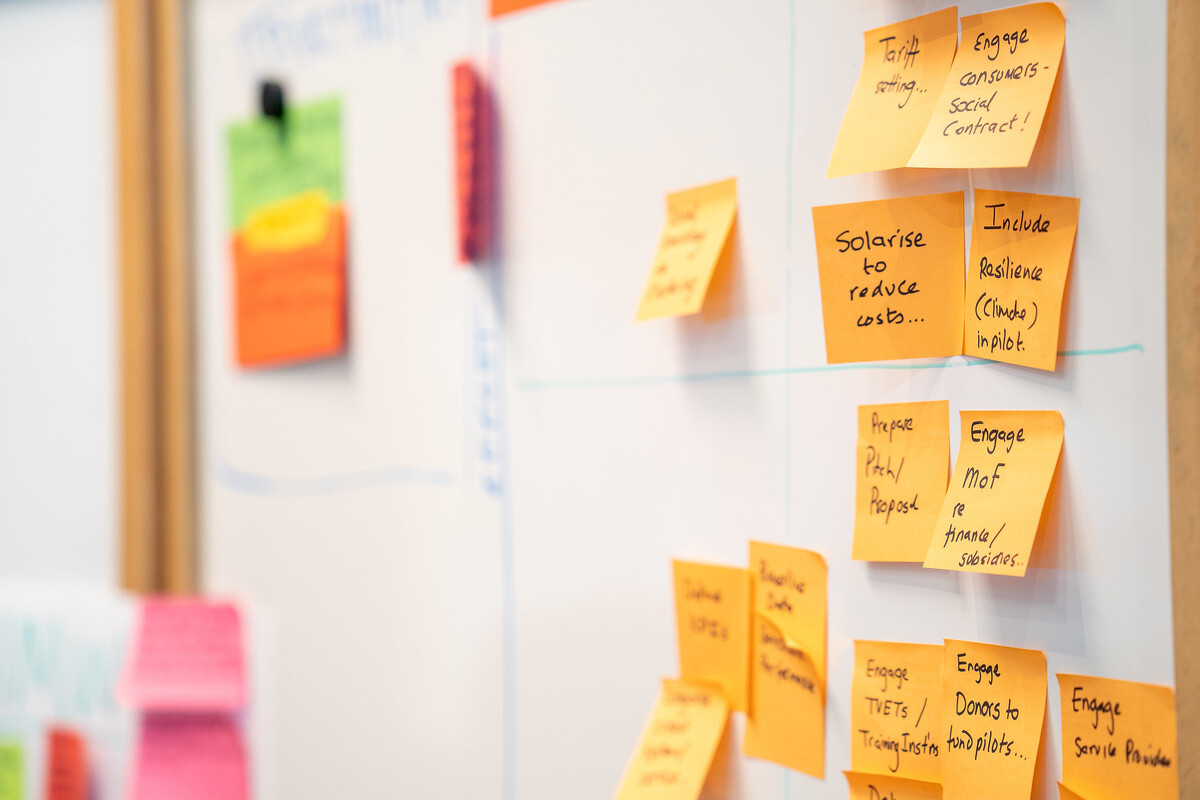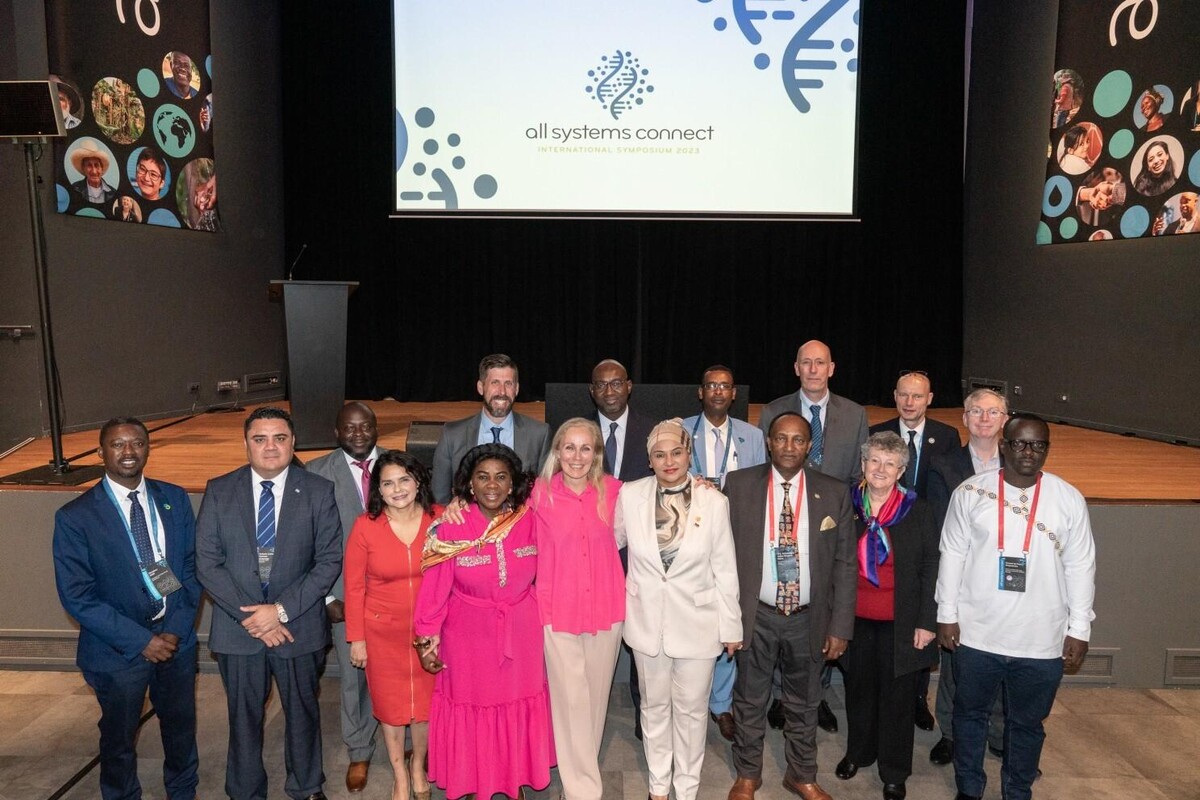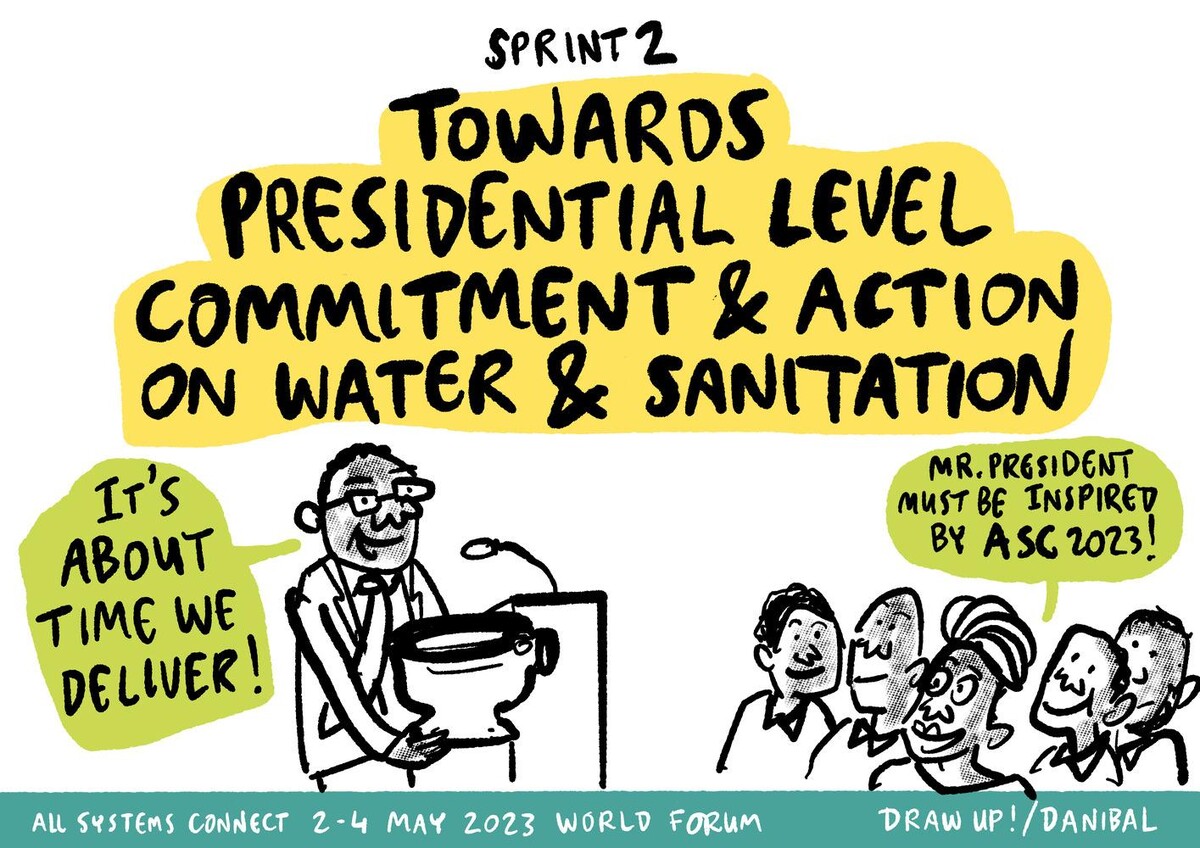What systems thinking, systems leadership and systems change do we need? Take-aways from the All Systems Connect International Symposium.
Published on: 24/05/2023
Written by Muyatwa Sitali, Head of Country and Partner Engagement at Sanitation and Water for All (SWA) partnership and originally published on the SWA website on 23 May, 2023.

All Systems Connect | International Symposium May 2023 @ World Forum, The Hague. Robert Tjalondo (Rockin' Pictures)/IRC
Earlier in May - IRCWASH, Water For People and Water for Good hosted a dynamic, inspiring and thought-provoking All Systems Connect 2023 Symposium. They brought together leaders and practitioners from several fields that are crucial to the planning, delivery, financing and sustainability of water, sanitation and hygiene services. The symposium also dedicated some sessions on how we can effectively engage and support political leaders especially presidents who deal with complex and competing needs. Presidents are perfectly placed to see and drive a truly connected agenda.
The symposium was a reminder that we cannot achieve the ambitious SDGs by just focusing on each one of the goals independently, much less when we focus on the individual targets. The SDGs are an interdependent agenda and we must make deliberate efforts to connect across the silos.
We must equally make deliberate efforts to address the systems that have pushed people to the end of the line of service delivery. Most communities on the frontlines of climatic, health and economic catastrophes are also without adequate resources to resiliently recover. They do not find themselves in these circumstances by choice or accident. It is by design, by systematic decision-making fueled by plans, policies and resources that marginalize them and exacerbate the risks they face.
Resolving this will require thinking that goes beyond the silos, combines a lot of data and aims for results across several issues. This was one of my many take-aways on the systems thinking, systems leadership and systems change that we need. No brainer, you may say. I agree. But I asked myself, how often do I truly engage with colleagues across different sectors? Often I find myself speaking to the same people most of the time and sometimes having the same conversations - mutually reinforcing the echo chamber or repeating the same hymn as members of the same choir. I left All Systems Connect 2023 truly looking for new ways to break the silos.
One way I see for doing this is through our work on engaging political leaders - ministers, parliamentarians and now Heads of State. Presidents, for example, have to make decisions that truly embody the complex systems thinking and leadership needed to focus on the sum of all our actions.
The Kingdom of the Netherlands hosted a breakfast focused on how to support Heads of State or Government to develop and implement Presidential Compacts which include water, sanitation and hygiene. The breakfast was attended by ministers and heads of government delegations attending the symposium. It led to a spirited discussion on the ambitions, how to engage Heads of State/Government, adjacent ministries, and the kind of support that partners can provide.

Ministers from Ethiopia, Ghana, Guatemal, Honduras, and Malawi, and Heads of Delegations from Liberia, Mali. Rwanda, and Uganda joined the breakfast convened by The Kingdom of the Netherlands. The breakfast was a follow up to the Heads of State Lunch also convened by The Kingdom of the Netherlands with the support of SWA, UNICEF and IRC during the UN Water Conference in New York in March 2023. Photo credit: Robert Tjalondo (Rockin' Pictures)/IRC
As Sanitation and Water for All we were also privileged to work with IRCWASH in co-convening a 7-session design sprint. The sessions focused solely on how we can better support and engage Heads of State and Government to achieve water, sanitation and hygiene needs while making gains in other sectors.

With the support of two dynamic facilitators - Thalia Rizou and Nicole Doray, MES - we covered different ideas culminating in four pathways:
Working with Heads of State/Government to appropriately prioritize water, sanitation and hygiene alongside other topics is neither easy nor a straightforward path. The design sprint helped to see through different scenarios and risks. Some of the risks include changes of political leaders - both the presidents and their cabinets - which can also affect the agenda. Partners underscored the importance of obtaining the support of the technocrats and civil servants at the highest level as a mitigation factor. Senior civil servants can play a key role as the custodians of institutional memory during transitions.
With only seven years to reach the end of the SDGs, reaching the finish line will require partnerships across different institutions, different topics and leadership at the highest levels of decision-making. The symposium was a crucial reminder of the need for every stakeholder to break the silos and build forward better. It helped that it had genuine diversity - I hope I am not the only one who noticed the diversity of speakers, most, if not all panels in plenary had speakers from Africa or Asia. And I do not recall a single manel.
Watch the video summary of the 3-day symposium
At IRC we have strong opinions and we value honest and frank discussion, so you won't be surprised to hear that not all the opinions on this site represent our official policy.